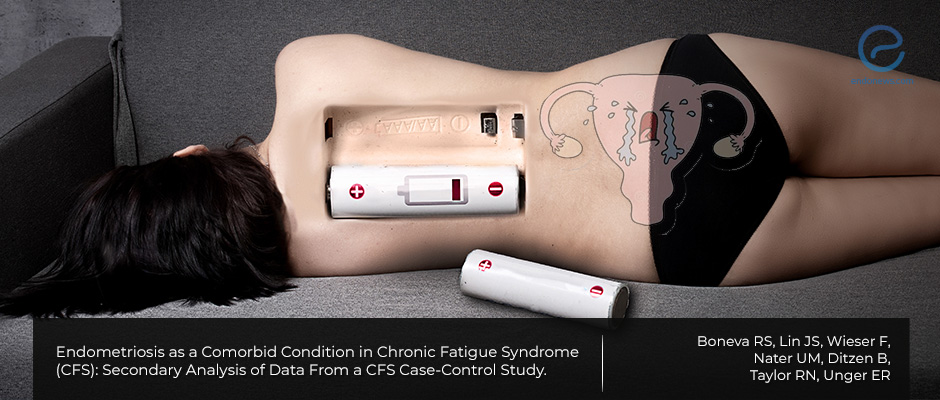Chronic Fatigue Syndrome and Endometriosis: Comorbid Conditions
Jul 10, 2019
Women with Chronic Fatigue Syndrome have a higher prevalence of endometriosis.
Key Points
Highlights:
- The endometriosis comorbidity is associated with chronic pelvic pain, earlier menopause, hysterectomy, and more chronic fatigue-related symptoms.
- Endometriosis in women with chronic fatigue syndrome (CFS) did not seem to affect functioning, fatigue, inflammatory markers, or other laboratory parameters.
Importance:
- The researchers aimed to examine the impact of endometriosis on CFS. This study showed that women more than a third of women with CFS had endometriosis as a comorbid condition.
What’s done here?
- Women with CFS and endometriosis were compared to women with CFS only, in terms of health and function scores, fatigue scores, the number of CFS symptoms, some select variables from the gynecological, psychosocial, stress and laboratory parameters.
Key results:
- The mean age of the women was 50.9 years.
- Out of women with CFS, 36.1% were found to have endometriosis.
- Women with both CFS and endometriosis were more likely to report chronic pelvic pain and hysterectomy, had more CFS symptoms, younger mean age at menopause onset, had a higher mean number of obstructive apnea episodes and reported more negative life events.
- Women with CFS and endometriosis did not have different mental health scores compared to those with CFS only.
- The authors did not find any difference between the two groups in relation to the stress experienced during childhood.
Limitations of the study:
- The proportion of women younger than 40 years was small.
- The participants were recruited from a single geographic area and there was a lack of racial/ethnic diversity.
- Information on comorbidities such as irritable bowel syndrome and interstitial cystitis, which play a role in chronic pelvic pain was not available.
Lay Summary
In the study of Dr. Boneva et al., from Atlanta, GA, the United States which has recently been published in the journal Frontiers in Pediatrics evaluated the impact of endometriosis on the health of women with chronic fatigue syndrome (CFS). The authors compared selected health characteristics and laboratory parameters in women with CFS with and without endometriosis.
Thirty-six women with CFS from a cross-sectional study of CFS conducted between 2002 and 2003 were included in the study. The health characteristics and laboratory parameters of interest of these women including functioning, fatigue, CFS-related symptoms, gynecologic history, routine laboratory parameters, inflammatory markers, cortisol levels, allostatic load, and sleep were analyzed and compared to the control group.
The mean age of the women was 50.9 years. Ninety-four percent were white, 72.6% were employed, 55.9% had a household income of over $40,000 and over two-thirds had more than high school education. Of women with CFS, 36.1% had endometriosis while endometriosis prevalence was 17% in the group without CFS. No difference was found between CFS with or without endometriosis groups in terms of age and body mass index. Compared to women with CFS-only, women with both CFS and EM were more likely to report chronic pelvic pain and hysterectomy, had more CFS symptoms, younger mean age at menopause onset, a higher mean number of obstructive apnea episodes and reported more negative life events. Other parameters did not differ significantly between the two groups.
To conclude, the authors found more than a third of women with CFS had endometriosis as a comorbid condition. The endometriosis comorbidity was associated with chronic pelvic pain, earlier menopause, hysterectomy, and more CFS-related symptoms. But, endometriosis in women with CFS did not appear to have an impact on functioning, fatigue, inflammatory markers, or other laboratory parameters. Since the proportion of women younger than 40 years in the current study was small, further investigations including younger women are warranted.
Research Source: https://www.ncbi.nlm.nih.gov/pubmed/31179251
endometriosis chronic fatigue syndrome chronic pelvic pain menopause hysterectomy sleep cortisol inflammatory markers

